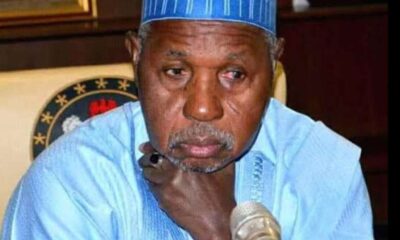
News
Certificate Scandal: CASER asks Enugu Attorney General to prosecute Ex-minister Nnaji
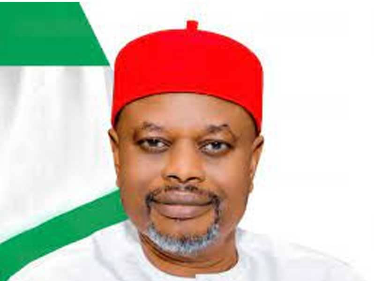
The Citizens Advocacy for Social and Economic Rights (CASER) has called on Enugu State’s Attorney General and Commissioner for Justice to prosecute former Minister of Innovation, Science and Technology, Chief Geoffrey Uche Nnaji, an indigene of Enugu State.
The erstwhile minister recently resigned from office over certificates forgery scandal. An online newspaper, Premium Times, had published an investigate report, which showed that Nnaji allegedly forged the University of Nigeria, Nsukka (UNN) degree certificate and a National Youth Service Corps discharge certificate, which he submitted to the Senate, Office of the Secretary to the Government of the Federation (OSGF), and Directorate of State Service (DSS) for his appointment, screening, and confirmation as a minister in President Bola Tinubu’s government in August 2023.
Addressing journalists in Abuja on Thursday, Executive Director, CASER, Mr Frank Tietie, said the organisation had already written to the Attorney General of Enugu State to immediately begin the prosecution of Nnaji as federal agencies that should have prosecuted him appeared to be dragging their feet.
According to the lawyer and activist, the dereliction of duty on the part of federal agencies, especially when linked to high-profile personalities, undermines public confidence in the nation’s justice system and erodes the foundational principle that no one is above the law.
He said: “It is precisely the perceived inaction and selective enforcement by these federal agencies for reasons that are politically obvious that has compelled CASER to formally request the Honourable Attorney General of Enugu State to exercise his constitutional powers under Section 211 of the 1999 Constitution (as amended) to investigate and prosecute Chief Geoffrey Uche Nnaji for alleged acts amounting to forgery and related offences.
“Section 211 empowers a State Attorney General to institute and undertake criminal proceedings against any person in respect of offences created by law in that state.

“This request by CASER is not politically motivated — it is a principled call for justice, deterrence, and the restoration of institutional integrity. If the federal agencies will not act because of political convenience or political correctness, then a state authority that still believes in the sanctity of law must do so.”
In case the Enugu State Attorney General is unwilling to prosecute the case, CASER asks him to issue a fiat to private citizens to prosecute the matter.
Tietie exhibited a copy of the letter sent to the Enugu State Attorney General and which was dated 6th October 2025, delivered and duly acknowledged on 7th October 2025.
CASER maintained that “failure to prosecute politically exposed persons sends a dangerous message that some individuals are above the law and this cannot continue if Nigeria is to strengthen democracy, uphold the Constitution, and command international respect as a nation governed by laws, not by persons.”
Recall that on Wednesday, former Vice President Atiku Abubakar, the African Democratic Alliance, Nigerian Bar Association (NBA), several senior lawyers, and CSOs also called for the investigation and prosecution of Nnaji, insisting that resignation was not an atonement for alleged offences of forgery and perjury.
However, the Executive Director of Civil Society Legislative Advocacy Centre (CISLAC), Auwal Ibrahim Musa (Rafsanjani), demanded that Nnaji be banned from holding public office for life to serve as a deterrent to others.
“He did not resign of his own volition. He was forced by the public, the media, and the civil society to resign. He didn’t resign as an honourable man. He actually went to court to stop the university from releasing his record. In fact, we should ban him from public office for life,” he stated.
News
Ex-Speaker, Aminu Masari, lists four conditions to bridge gap between campaign promises and realities
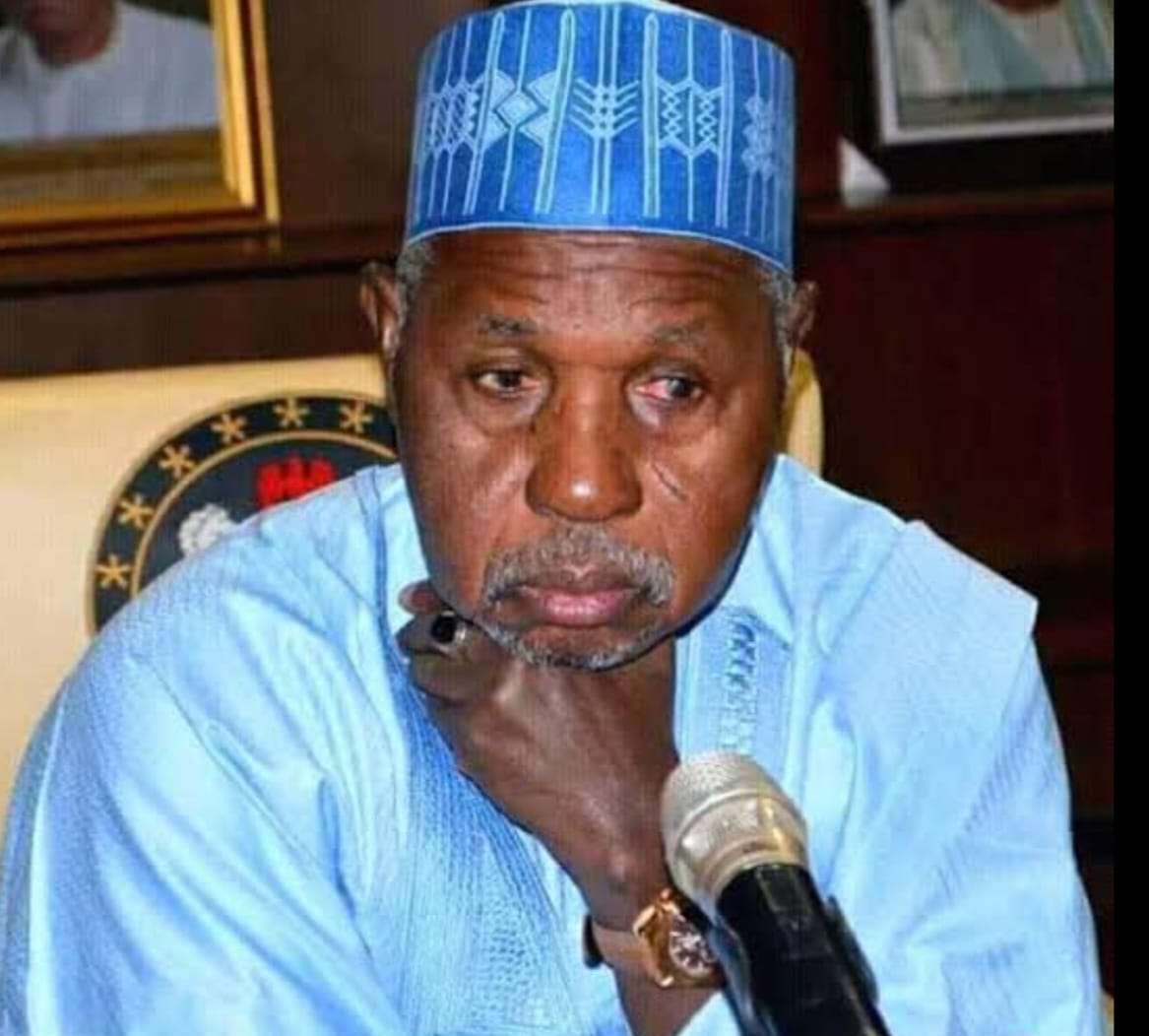
The former Speaker of the House of Representatives and former Governor of Katsina State, Rt. Hon. Aminu Bello Masari has lamented the yawning gap between campaign promises by politicians and realities of governance on the ground.
Delivering the Keynote Address at the 9th Annual Conference of the Guild of Corporate Online Publishers (GOCOP) in Lagos, Masari, who spoke on the theme: Reconciling Campaign Promises with Governance Realities: Challenges and Prospects, listed four conditions to bridge such gaps in the interest of democracy.
To Masari, political actors must campaign with responsibility, insisting that such campaign promises should be realistic, costed and achievable within the available resources.
“Unrealistic pledges made merely to capture the mood of the electorate should be challenged and exposed. Only then can we begin to elevate our political culture and make sure that the process justifies the end. Second, governance must be anchored on strong institutions. With capable institutions, policies can be implemented more consistently and transparently.”
According to him, the third leg must imbibe honest communication with citizens by political leaders. He tasked leaders to explain the trade-offs — why certain promises may take longer, why resources must be reallocated and how progress will be measured.
“Fourth, citizens themselves, including civil society and the media, must understand realities and properly communicate those realities in addition to holding leaders accountable. They should track promises, and demand transparency instead of creating sensational headlines to attract followers, especially now that the number of followers translates into monetary gain.”

Looking at the challenges before political leaders in fulfilling campaign promises, the former Katsina State governor named limited resources, competing demands and unexpected crises.
“Many manifestos are aspirational documents, not grounded in the reality of available resources or institutional capacity. Fiscal constraints are also a big factor. Campaign promises hinge on the resources available to any country. In many African nations — and more specifically in our case — budgets are still heavily dependent on a single commodity: oil. Yet, as we all know, the price of oil is beyond our control. It is volatile, shaped by global market forces, geopolitical tensions, and other complex and unpredictable factors.”
He said beyond resource volatility, there are also unforeseen emergencies that force governments to reorder their priorities with COVID-19 as a vivid example. He said such emergencies consume time, energy and resources and compel governments to suspend plans and promises across all sectors, resulting in campaign promises suffering in the long run.
“Here in Nigeria, insecurity remains a persistent challenge. It undermines production, disrupts livelihoods and reduces national revenues. It compels government to divert enormous resources toward security operations. Another major issue is weak institutions. Even when funds are available, corruption, bureaucracy and inefficiency can derail delivery.”
He concluded that reconciling campaign promises with governance realities is not just about avoiding embarrassment for politicians but about protecting the integrity of democracy itself.
The keynote speaker warned that if citizens repeatedly see promises made and broken, they lose faith in the system.
“But if they see even modest progress explained honestly and delivered consistently, they will continue to believe in the promise of democracy. Let our promises be realistic, our expectations be modest, our governance transparent and our accountability strong. In doing so, we can transform hope into progress, and democracy into a vehicle of real change.”
He commended the EXCO and members of GOCOP on its 9th anniversary and consistently creating platforms for the people to have honest conversations about the future of our democracy.
“This is where journalism at its best, and more specifically GOCOP in this digital age, becomes indispensable. You and your profession are the bridges between the leaders and the people. You shape narratives, hold leaders accountable and track progress.”
News
Enugu Gov, Exco, Lawmakers defect to APC Tuesday
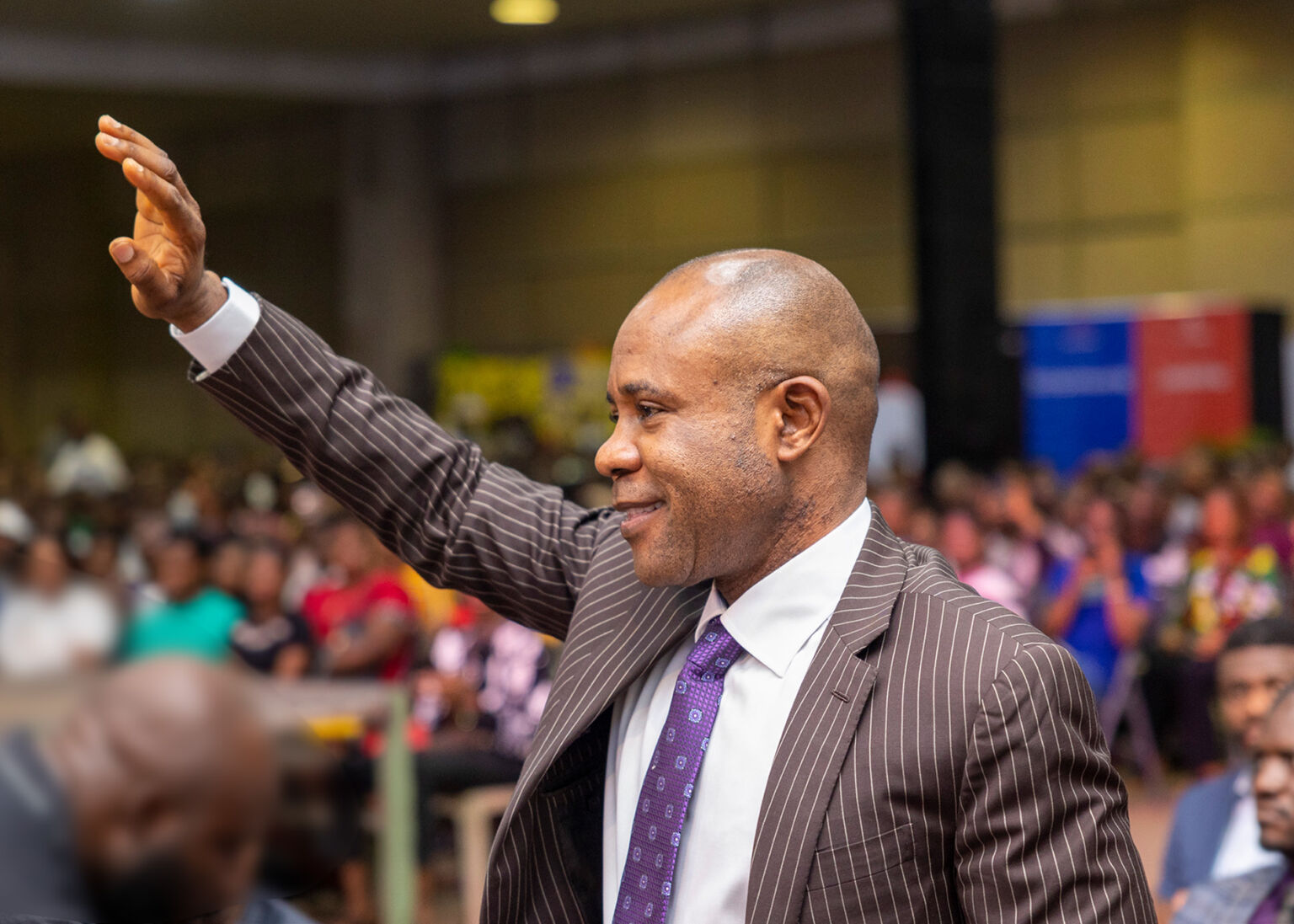
The governor of Enugu State, Peter Mbah, has dumped the Peoples Democratic Party (PDP) for the All Progressives Congress (APC).
This was confirmed by the Enugu APC Caretaker Chairman, Dr Ben Nwoye, while speaking to journalists on Friday.
According to him, Mbah will officially defect to the ruling party on Tuesday, October 14, 2025, in Enugu, alongside federal and state lawmakers, the state executive council members, and ward and local government leaders across Enugu State.
The APC National Working Committee (NWC) on Thursday dissolved the Enugu State Working Committee (SWC) over unresolved differences, appointing a seven-member caretaker committee to oversee the affairs of the party.
The wave of defections from opposition parties to the All Progressives Congress (APC) has continued to grow.
A few months ago, Akwa Ibom State Governor Umo Eno and his Delta State counterpart, Sheriff Oborevwori, both left the Peoples Democratic Party (PDP) to join the APC.

During the defection ceremonies held in Uyo and Asaba, the former APC National Chairman, Dr. Abdullahi Ganduje, revealed that more opposition governors and top party leaders were preparing to cross over to the ruling party.
On October 8, Kelvin Chukwu, the Senator representing Enugu East, also announced his defection from the Labour Party (LP) to the APC.
His move raised the number of APC senators to 73, giving the party a two-thirds majority in the 109-member Senate — a threshold that allows it to easily pass major decisions and legislation.
At the moment, the Senate’s composition stands as follows: APC, 73 senators; PDP, 28; LP, four; All Progressives Grand Alliance (APGA), two; and one each from the Social Democratic Party (SDP) and the New Nigeria Peoples Party (NNPP).
News
Ben Nwoye returns as Enugu APC Chairman after dissolution of Agballah-led exco
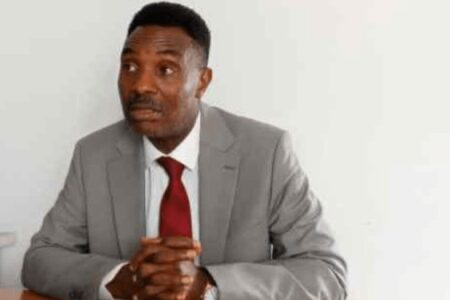
• Ex-Speaker Odoh appointed Secretary
The All Progressives Congress, APC, has dissolved the Enugu State working Committee of the party.
This is preparatory to the detection of Governor Peter Mbah to the ruling party.
The dissolution of the former party executive led by Ugochukwu Agballah came barely 2 days after the Minister of Innovation, Science and Technology, Uche Nnaji resigned over alleged certificate forgery.
Nnaji is an ally of Agballah, the now ex-chairman of APC in Enugu State.
Agballah and Nnaji had seriously opposed Mbah’s defection to the party.
However, Nwoye and other foundation members of the APC insisted that the governor is gladly welcome to the party.

Rising from its 179th meeting in Abuja on Thursday, the APC National Working Committee, NWC, dissolved the Agballah-led SWC with immediate effect.
In its place, former chairman of the party in the state, Barr Ben Nwoye is now the new helmsman of the party in the state.
A former Speaker of the Enugu State House of Assembly, Barr Eugene Odo is the Secretary of the 7-man caretaker committee.
Resolution taken during the meeting was signed by Hon. Durosinmi Meseko, Deputy National Publicity Secretary of the APC.
It reads in parts:
The National Working Committee (NWC) of the All Progressives Congress (APC) held its 179th meeting at the Party’s National Secretariat, Abuja, on Thursday, 9th October, 2025, presided over by the National Chairman, Prof. Nentawe Goshwe Yilwatda.
“At the conclusion of the meeting, the following resolutions were reached:
1. Dissolution of Enugu State Executive Committee and Appointment of Caretaker Committee
The NWC approved the dissolution of the APC Enugu State Executive Committee with immediate effect, following a comprehensive review of the state of the Party in Enugu State.
Consequently, a seven (7) member Caretaker Committee has been constituted to oversee the affairs of the Party in the State.
The Committee, which will be inaugurated on Friday, 10th October, 2025, at 10:00 a.m. at the Party’s National Secretariat in Abuja, is composed as follows:
Dr. Ben Nwoye – Chairman
H.E. Mrs. Fidelia Njeze – Member
Comrade Peter Chime – Member
Dr. (Mrs.) Oby Ajih Member
Dr. Chiedozie Nwafor – Member
Engr. Emma Ekeh – Member
Rt. Hon. Eugene Odoh – Secretary
Details of the APC resolution:


-

 News1 day ago
News1 day agoBREAKING: Tinubu grants 175 persons presidential pardon
-

 News2 days ago
News2 days agoAtiku backs Sowore-led protest, demands immediate release of Nnamdi Kanu
-

 News3 days ago
News3 days agoWhy I resigned, Nnaji explains, denies wrongdoing
-

 News3 days ago
News3 days agoCooking Gas: Scarcity, price hike artificial, middlemen exploiting customers — NALPGAM
-

 News2 days ago
News2 days agoRMRDC targets 30% Value Addition Policy on Export of Local Raw Materials
-

 News2 days ago
News2 days agoPresidency rejects World Bank report claiming 139 million Nigerians live in poverty
-

 News1 day ago
News1 day agoTinubu nominates Kogi’s Prof. Amupitan as INEC chairman
-

 News1 day ago
News1 day agoSSANU/NASU protest paralyses activities at UNN




